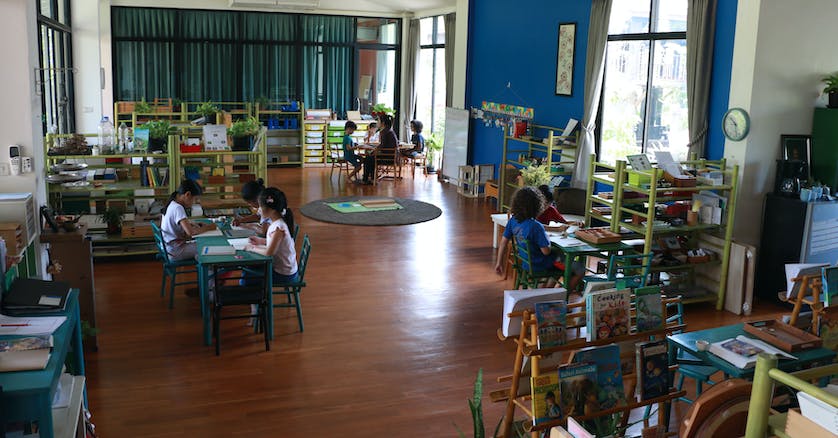
Education in its traditional form is being reconstituted on a global scale, on the most part to meet the exponentially growing needs of an unknown future. Parents, educators and policy makers are beginning to realise that adaptability, perseverance, divergent thinking, creativity and nonconformity will be just as valuable to future generations as the traditional academic subjects in this ever fast changing world. What will become of our children and how can we best prepare them?
I have to say that the school doesn’t look at all like the kind I went to and the interior I am now looking at is almost unbearably enticing to the child in me. Randomly placed work stations are dotted here and there; a wide selection of neatly positioned colourful learning materials adorn child-height shelves – all designed, I am told, to stimulate curiosity and appeal to the child’s urge to freely explore, touch, feel, browse and investigate.
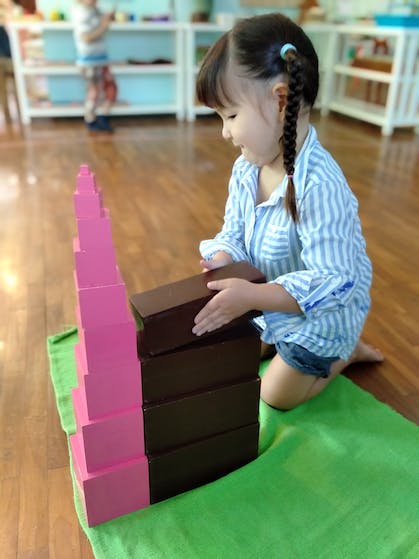
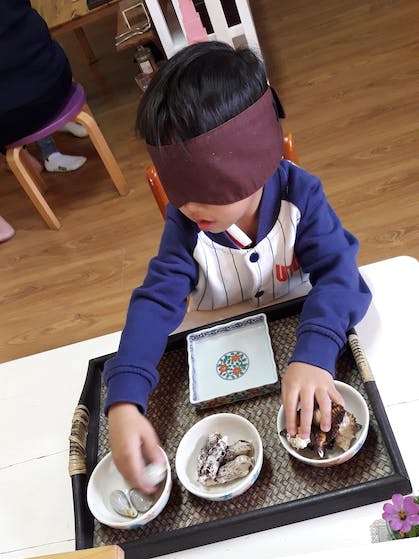
Frustratingly, I’m viewing the school during the nationwide school closures and there are no children to be seen, so I watch some video footage taken from the spot I am standing in. The class comes alive with activity; the specially designed learning materials are freely available for the children to choose – alone, or in duos – while the teacher takes on the role of a passive bystander, discreetly moving about the room stepping in only to assist, encourage and guide when needed. Various nooks, cubbies and work tables are occupied by children wrapped in concentration on their own particular challenge, activity, or in quiet contemplation.
Montessori’s approach to education, while progressive, dates back 100 years. It is a proven approach to learning that encourages children to be guided by their own innate desire to learn. “In Montessori schools children learn how to learn” says Nathassasi Techo (AKA Kru Aer), founder & head of school, who opened Chiang Mai Montessori with her husband, Dan, in 2010. “We don’t tell children ‘what’ to learn or when to stop. Our classrooms are specifically designed to encourage and inspire free independent exploration in the children”.
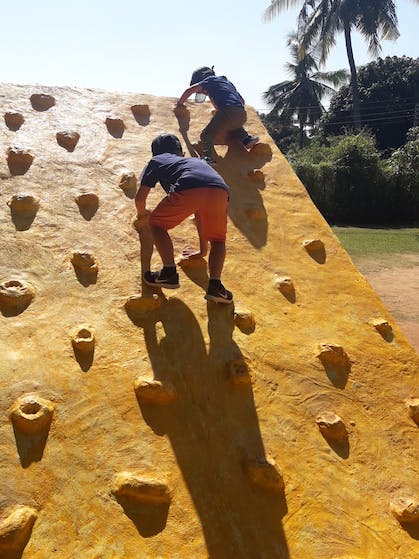

Chiang Mai Montessori sits on nine rai of land with views of distant mountains. The campus has a whopping three rugged jungle-gym style playgrounds for its 80 children, who range from 14 months to 12 years. Large 80-100 sqm. classrooms occupy their own individual single-storey buildings. “We designed the school in this way to feel welcoming to children but also from a health and safety point of view” claims Khun Aer. “We wanted the children to feel at home here but also be able to get out quickly in an emergency!”.
Kru Aer always wanted to work with children and stumbled across Montessori education by accident when visiting friends in Chiang Rai. She is the first member of her family to get a university education and describes building the school in the heart of the community that raised her with a great sense of dignity. She values her Northern Thai heritage and feels strongly about promoting local knowledge, culture and traditions for the benefit of the children.
CMMIS has a 3-rai sized farm on campus where children take care of chickens and learn about compost, organic vegetables and growing rice.
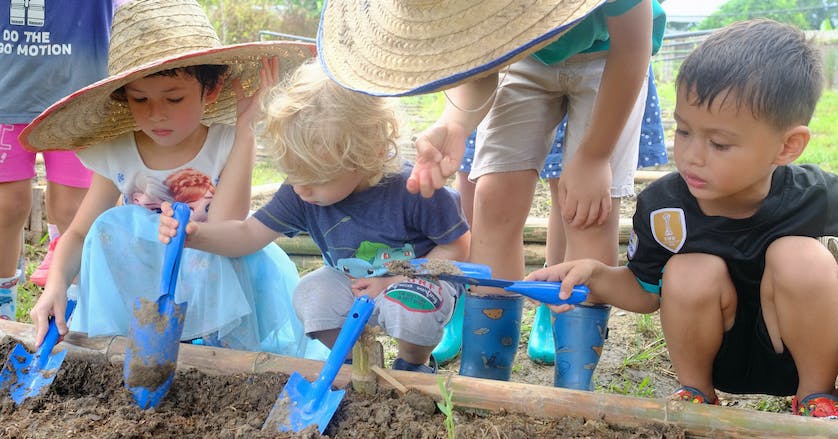
Adjacent to the farm is a grand (newly built) open sided teak house with a modern ‘community kitchen’ complete with its own hand-built clay wood-fire pizza oven. The kitchen provides a space to teach children about cooking and an appreciation of food, while older children get to learn the practical skills of running a real café. The kitchen and Lanna house itself are also a resource for the parent community, who can use its spaces for workshops, yoga and other school community events.
Montessori education has fans and detractors. According to Aer, the ‘freedom within limits’ concept, which allows children to choose activities is often mis-construed by parents who expect to see more teacher intervention. “We completely understand that”, says Aer. “and we welcome people to observe what a class in action is really like before they make a decision whether it’s for them or not”. Among the supporters are an impressive number of well-known internet billionaires. Amazon’s Jeff Bezos is a Montessori alum and recently promised to fund a 2 billion dollar Montessori inspired network of preschools. Sergei Brin and Larry Page, founders of Google, point to the focus on self-directed learning in their Montessori education as roots to their success.
“Just because we are classed as ‘alternative’ doesn’t mean we shun the traditional school system”, says Aer. “Our children need to be able to integrate their knowledge more as they get older and this year we are introducing Cambridge exams and taking on PGCE trained teachers to help align our children with the mainstream.
My tour draws to an end and Aer is needed on the farm to assist the workers. She is impressively hands-on and I feel quietly impressed and optimistic for the children that pass through these school gates. I leave wondering how many people wish they had gone to a Montessori school when they were young.
The future may be an “undiscovered country”, but I get the sense that children from CMMIS will undertake the journey confidently, enthusiastically and with a spring in their step.
Chiang Mai Montessori International School is currently enrolling for the 2020-21 academic year. If you would like more information or to arrange a tour of the school contact them through their website, Facebook page or give them a call.
Contact:
Chiang Mai Montessori International School website
CMMIS Facebook page
Call: 084 616 6988 (English) 099 372 9922 (Thai)






















